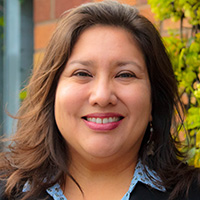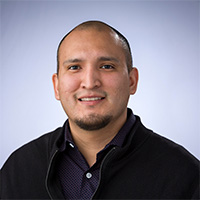
Cancer Screening and Prevention through an Intergenerational Intervention Using an Indigenous Approach - SPOC
Forming relationships and partnerships with tribal communities are crucial in addressing cancer health disparities among American Indian & Alaska Native populations. Dr. Myra Parker and Craig Dee describe how established trust and relationships with tribal entities led to the development and implementation of tribally-driven strategies to address cancer among Washington State Tribes.
Target Audience
These courses are intended for medical, radiation, and surgical oncologists, hematologists, advanced practice nurses, registered nurses, physician assistants, radiologic technologists, researchers, pharmacists, trainees, allied health personnel, and others who are interested in care for patients and survivors in North Carolina.
Learning Objectives
- Describe strategies that develops a process to support the selection of evidence-based interventions and identify approaches to adapt the interventions to ensure a strong and contextual fit with tribal communities.
- Discuss the process of confirming data collection efforts with Tribal Epidemiology Centers given the history of research participation among tribal communities.
- Describe the CBPR process to reach out to Tribal Epidemiology Centers, establish trust, and build relationships between Fred Hutchinson Cancer Research Center and tribal entities.
Handouts
Taking the Course
To continue, click the button Take Course.
If you do not see the button, please ensure that you are logged in. If you are logged in and still don't see the button, please contact us at [email protected] or (919) 445–1000.
 | Myra Parker, PhD, JD, MPH Associate Professor, Psychiatry and Behavioral Sciences, Indigenous Populations Faculty Lead |
 | Craig Dee, MPH(c) Community Health Educator for Indigenous Populations |
Presenter Disclosure Information
Myra Parker, PhD, JD, MPH and Craig Dee, MPH(c), have no relevant financial relationships with ineligible companies as defined by the ACCME.
To receive free Continuing Education Credit for this Self-Paced, Online Course:
- Watch the video
- Complete the assessment with a score of 80% or better
- Complete the evaluation
- Download the appropriate certificate
The following accrediting agencies have approved this course for continuing education credits. Participants should understand that their individual participation and claiming credit must abide by the regulations set forth by their respective accrediting agency.
1.00 AMA PRA Category 1 Credit™
The School of Medicine of The University of North Carolina at Chapel Hill designates this activity for a maximum of 1.0 AMA PRA Category 1 Credits™. Physicians should claim only the credit commensurate with the extent of their participation in the activity.
1.00 AMA PRA Category 1 Credit™
Non-physicians will receive credit for time spent in an activity designated for AMA PRA Category 1 Credit™. Most health care professionals can use this credit, but UNC CPD cannot guarantee that licensing boards and other organizations will accept it. If you are not sure, please check with your organization to make sure that AMA PRA Category 1 Credits are accepted.
1.00 NCPD/CNE
The University of North Carolina at Chapel Hill is accredited with distinction as a provider of nursing continuing professional development by the American Nurses Credentialing Center’s Commission on Accreditation.
In most cases, regulations prohibit the repeated use of the same educational activity (Live Webinar or Self-Paced, Online Course but not both) as it relates to satisfying CE requirements to maintain licensure. Attendees are also required to achieve a score of 80% or better on an assessment for the Self-Paced, Online Course to receive CE credit. Please contact your individual accreditation agencies for more details.
Available Credit
- 1.00 NCPD/CNE
- 1.00 Participation

 Facebook
Facebook X
X LinkedIn
LinkedIn Forward
Forward